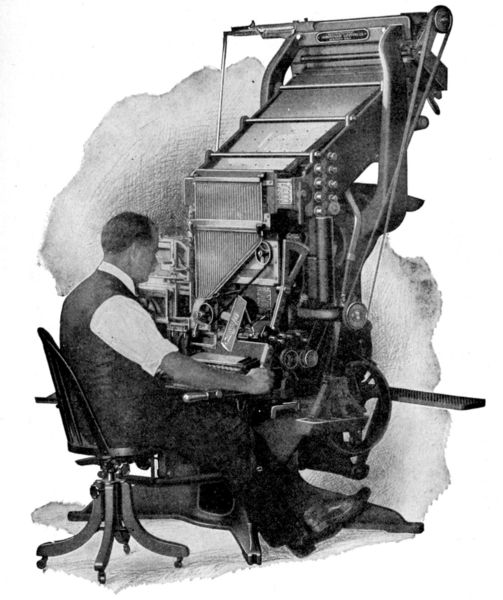The Linotype Machine, 1915.

Above is the proto-blogger: a Linotype compositor. From the days of Gutenberg, publishing had been completed by assembling tiny chunks of metal with embossed letters on the top edge. The Linotype machine simplified the process by casting those metal letters in entire lines at a time, by means of a keyboard, ready to go to the press. I've seen these amazing machines in operation first-hand, and have several text 'slugs' around here, some with my and my kids' names on them. The machines are completely mechanical, produce an amazing amount of text in a very short amount of time, and later versions (they were used well into the late 20th century) even had the ability to operate unmanned, receiving instructions via the news-wires. Unlike blogging compositors today, due to their size and expense Linotype machines rarely made it to the ranks of amateur publishers, but did help move the ability to composite type from the hands of skilled master typesetters to anybody that could be trained to use the keyboard. If you'd like an overview of how these amazing machines worked, you can see a section from an article in The Book Of Wonders.
Labels: 1910s, 1915, linotype, typesetting










